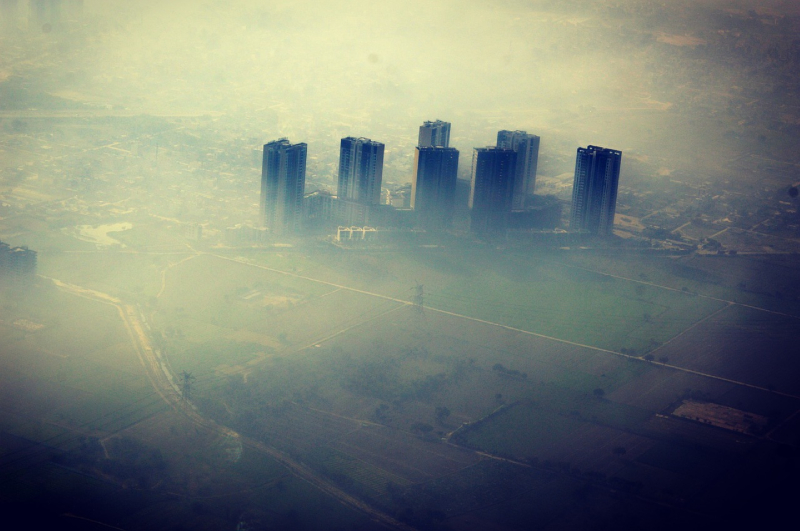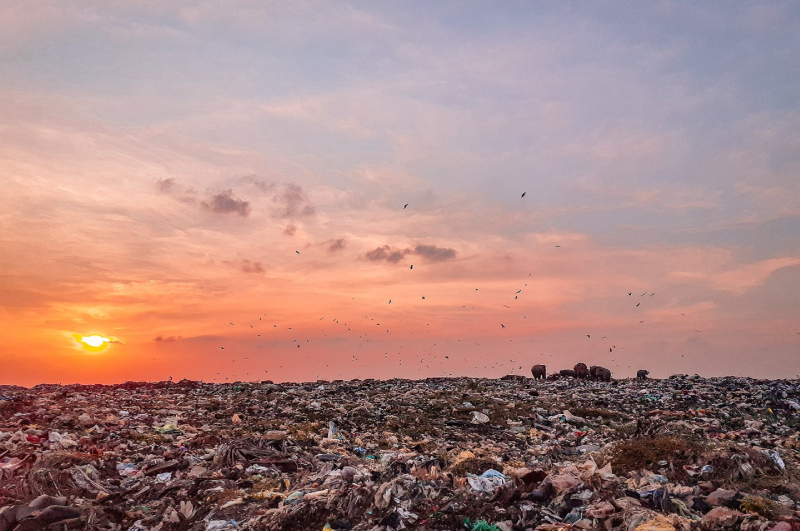



Breathing is quietly becoming a perilous instead of life-giving activity. This is why, following a United Nations resolution of November 2019, the international community has been observing 7 September as the International Day of Clean Air for Blue Skies.
Also known as World Clean Air Day, it is a day on which the UN through its resolution stresses the importance and urgency of raising awareness at all levels about the poor air quality and the toxicity thereof. The day is meant to encourage everyone to act and engage in activities that lead to the improvement of the quality of the air we breathe. This year’s theme for the fourth annual celebration of this notable day is Together for Clean Air.
This theme is chosen at a time when the World Health Organisation (WHO) has warned that almost the entire world population (99%) is now breathing polluted air that is threatening to their health. It is a frighteningly high figure that has gradually risen from 91% in 2016. Pollutants originating primarily from human activities associated with fossil fuel combustion continue to compromise the quality of the air we breathe. Consequently, breathing is quietly becoming a perilous instead of life-giving activity.
The UN Environment Programme (UNEP) has reported that about 2.4 billion people are exposed to dangerous levels of household air pollution. According to the WHO, “People living in lower and middle-income countries are the most exposed to air pollution. They are also the least covered in terms of air quality measurement.” Continuous exposure to polluted air is not only causing pulmonary, respiratory, cardiovascular and cerebrovascular diseases but also generally compromise one’s health and vital organs. Consequently, about 6 to 7 million people a year, as reported by UNEP, die as a result of breathing polluted air. These many premature deaths can and should be avoided if human behaviour that is detrimental to the atmosphere and the environment were to change.
Clean air is not only crucial for our health but also for mitigating climate change. Air pollution with the short-lived climate pollutants (SLCPs) are also responsible for climate change. According to Climate and Clean Air Coalition, SLCPs - black carbon, methane, tropospheric ozone, and hydrofluorocarbons (HFCs) – are the principal contributors to anthropogenic global warming after carbon dioxide. They are liable for up to 45% of current global warming. Inaction and procrastination toward reduction of this trajectory will result in SLCPs being responsible for as much as half of global warming caused by human activity.
The crisis of air pollution is an emergency that can no longer be ignored, nor can it be tackled individually or in silos. It is a catastrophe that need consociated efforts between sectors and beyond silos, among stakeholders like individuals, civil and religious communities, NGOs, governments, business, etc. to cooperate and work together for clean air.
Coincidentally, the International Day of Clean Air for Blue Skies is commemorated during the time of the Season of Creation (1 September – 4 October) when Christians around the world pray and carry out activities for the purpose of mitigating climate change and promotion of the protection of the rest of God’s creation. This ecumenical effort by Christian Churches is just but one good example of how different stakeholders can come together to highlight the crisis, not only of pollution but of climate change and promote activities and ways of mitigating the crisis. This is one of the practices that can be emulated and perpetuated beyond religious confines for the wellbeing of the atmosphere and the environment.
The transboundary nature of air pollution, the reported figures of people exposed to polluted air, the health damage resulting in that exposure and those dying as a result of breathing polluted air, should highlight the gravity of the problem and the urgent need for mitigating actions. “Together for Clean Air,” like Pope Francis’ call for everyone to take action in care for our common home (Laudato Si’: On Care for Our Common Home), is an appeal for all to take responsibility to protect the earth’s atmosphere and to ensure a clean and healthy air for everyone.
Reports from scientists and other interested experts portray a calamitous future if the imprudent and selfish anthropocentricism that continue to pollute the air, damage the environment and our common home does not stop. Leaders from all spheres of life need to encourage and inspire their followers to work together not only for reduction in greenhouse gas emissions and air pollutants, but also for the care of creation and to heal the brokenness Pope Francis laments in his encyclical Laudato Si’. One hopes that the theme “Together for Clean Air,” will encourage and remind everyone that there’s an urgent need for all to come together against the worsening conditions of our atmosphere and environment.
Related Articles
Select Payment Method
Pay by bank transfer
If you wish to make a donation by direct bank transfer please contact Fr Paul Hamill SJ treasurer@jesuits.africa. Fr Paul will get in touch with you about the best method of transfer for you and share account details with you. Donations can be one-off gifts or of any frequency; for example, you might wish to become a regular monthly donor of small amounts; that sort of reliable income can allow for very welcome forward planning in the development of the Society’s works in Africa and Madagascar.
Often it is easier to send a donation to an office within your own country and Fr Paul can advise on how that might be done. In some countries this kind of giving can also be recognised for tax relief and the necessary receipts will be issued.

